by Rose Lock
Rosey Pool and the case of the damaged Equiano; or a book made safe and a treasure revealed.

The world of archives works slowly – the papers we hold need care and attention to prepare them for researchers, often to their frustration. But sometimes we get a request that we just can’t say no to, so it’s stoke up the coals and full steam ahead! Sometimes such emergency procedures provide us with surprise gifts, as happened in this case.
Dr. Rosey Pool and her papers are well known to us here in Special Collections, and we’ve always felt the fascinating archive created by a Dutch Jewish teacher and translator involved in the early days of the field of African-American studies was underused by researchers.
Three academics and a performance artist visited The Keep (Dr’s Doug Haynes, Diarmuid Hester and Joanna Pawlik, plus Harold Offeh), and spent days with the papers and through them met Dr. Pool and her friends and colleagues. They plotted and planned to bring Rosey to a wider audience through a series of events connected to the Being Human festival. One of these, ‘Treasures from the Rosey Pool Library’ invited academics to respond to volumes from her bookshelves, discovering Rosey’s interests, obsessions, and the studies she pioneered.
The grounding of these public events in Rosey’s archive and books gave them each a different sort of closeness to her life. Our challenge was to help the main protagonists bring a little extra of Rosey into the rooms. For this event, the presence of Dr. Pool’s books would add an extra dimension to the event, but could we and should we remove them from the safe-keeping of the archive?
Our first instinct as archive staff is ‘yes’ followed swiftly by the proviso ‘as long as it doesn’t damage the original material’. Most of the books were in good condition, so just needed an archival escort to ensure careful handling, an easy thing to accomplish as I was keen to attend the Treasures session already.
Where we met more solid issues was with one volume, ‘The interesting narrative of the life of Olaudah Equiano, or Gustavus Vassa the African, written by himself’ or SxUniversityRareBooks/822 as we call it.
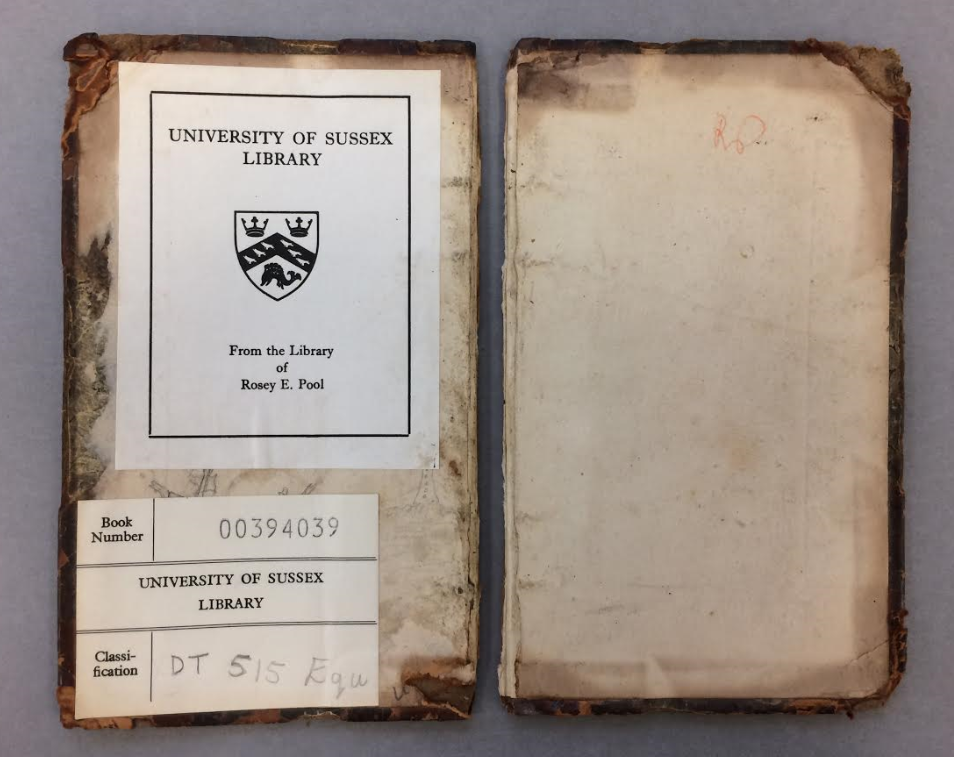
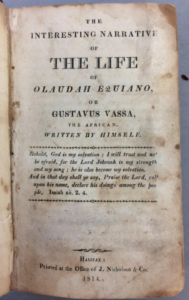
The book, published in 1814, was in a bad way, having spent rather too long on the main library shelves. It needed to be rebound sympathetically, in a way that ensured the information conveyed by the now beyond repair covers was retained, but prevented further damage to the rest of the book. It would have to be dealt with by our East Sussex Record Office colleague Melissa Williams, a highly regarded conservator of many years’ experience, but would it be ready in time? Lucky for us, Melissa relishes a challenge, so one week later we sat in a meeting room looking through leather and board samples, matching colour and texture to the original. Melissa explained that she could remove the original covers, stabilise the book block, and create a new cover that would protect the original pages. This solution would mean that as long as all went to plan, the volume would be ready in time.
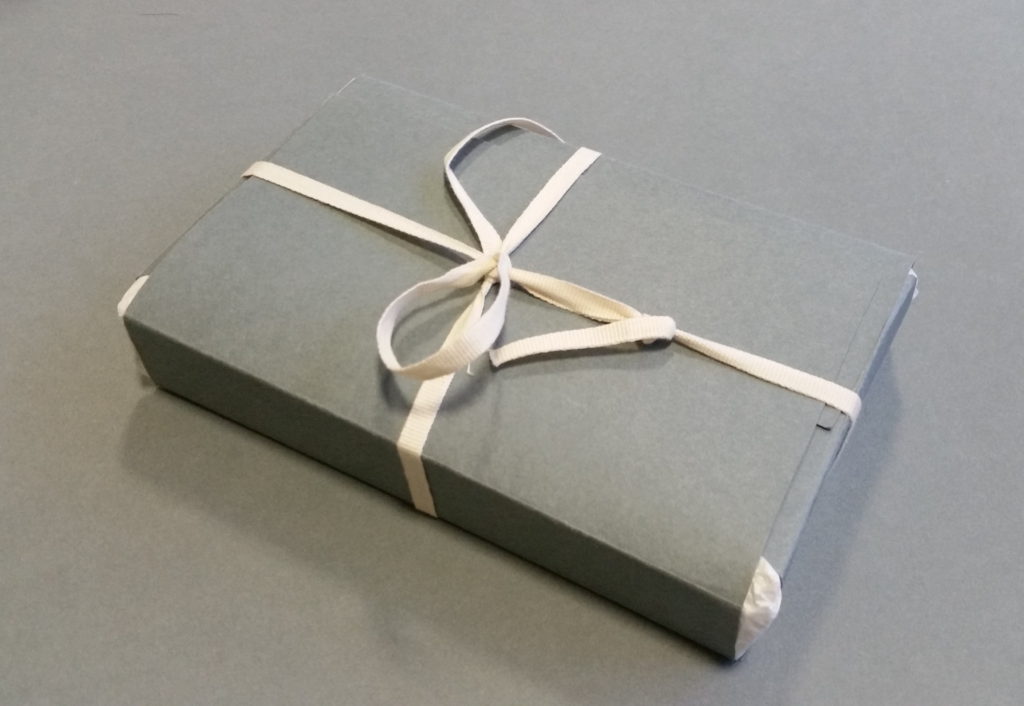
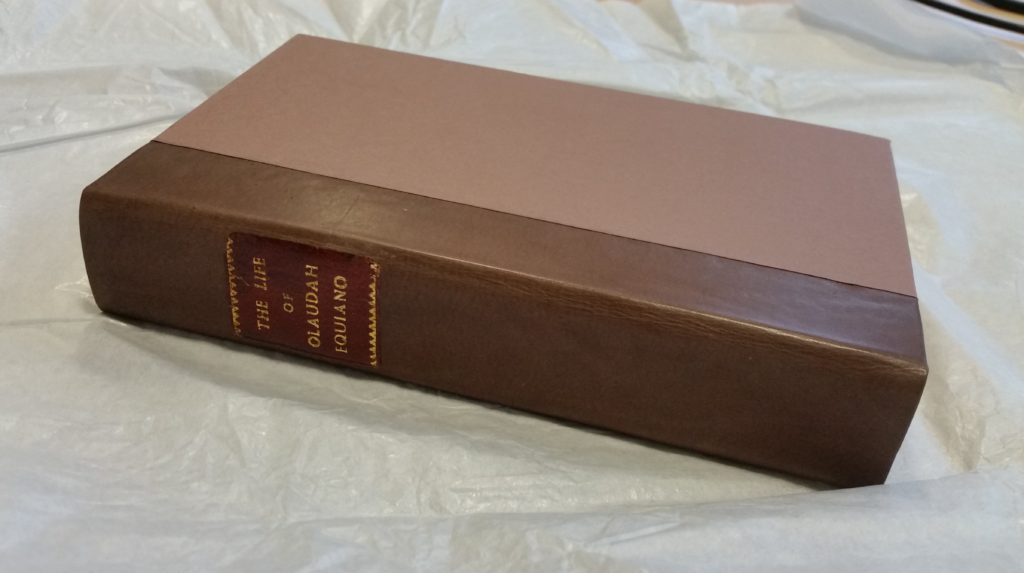
The book was returned to us 24 hours before the event, beautifully re-covered in a binding that matched the original in feel but was obviously modern. The endplates had been copied and high quality print outs were included in the new binding to prevent the information they held being lost. In the conservation of the book Melissa had uncovered a treasure. A sketch in pencil, partially hidden by the library’ bookplates, was now revealed.
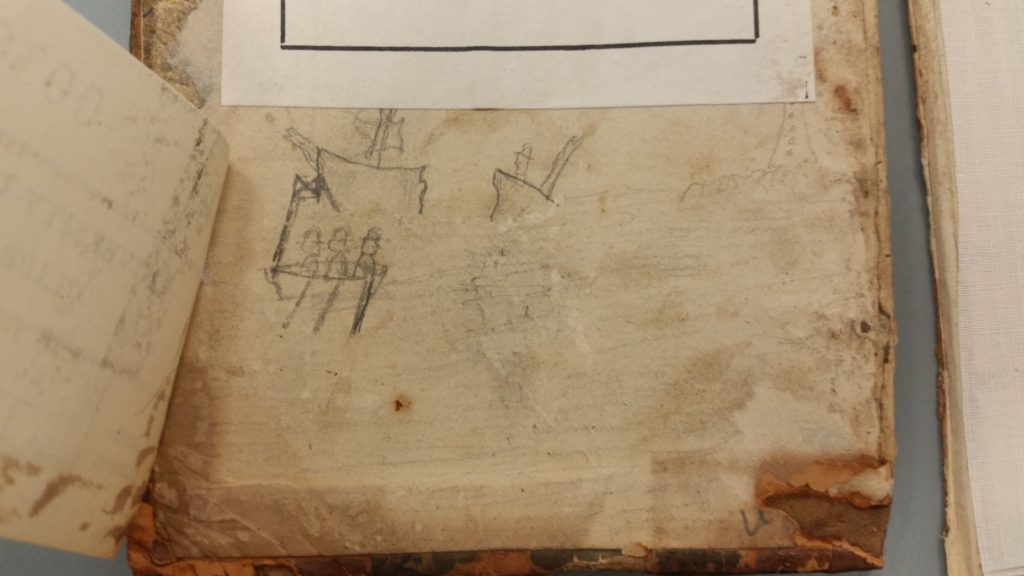
The masts of a ship and a tiny lighthouse had always been visible peeping above the classmark, a tiny hint of a larger image that I found out in the Treasures event had been fascinating and frustrating Dr. Mike Rowland for years as he studied the volume. Now at last the full sketch was revealed. The ship was broken in two and sinking, going down with a single figure on the deck. More sailors, wearing rather fine hats and each bearing an oar, were rowing a small boat away from the wreck, towards a lighthouse the crew should perhaps have paid more attention to. We can date this delightful pencil sketch to pre-1972, when Dr. Pool’s library was donated to the University of Sussex, but past that, it is a mystery. Who was the artist? When was it drawn? The style and material give no clues, nor does the subject matter, which Dr. Rowland suggested may be a scene from the book itself. It remains as baffling as before it was revealed, a charming little piece of marginalia gifted to us by the past.
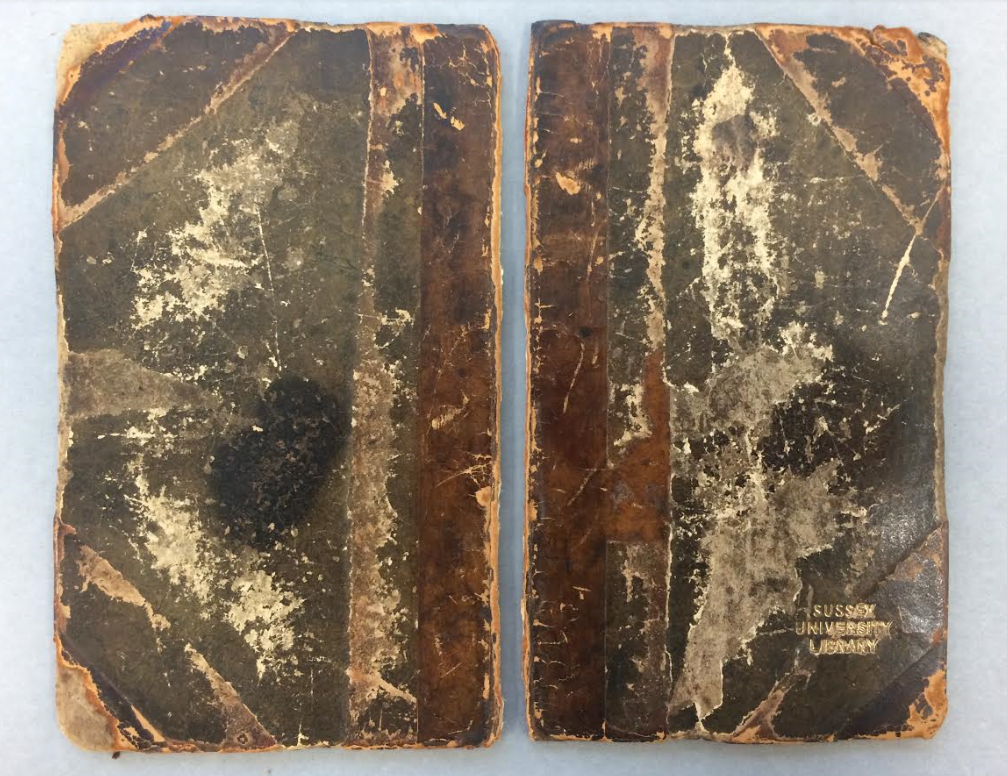
The original covers are currently on display as part of an exhibition on conservation at The Keep by Ellie King, which includes images of the process of rebinding this book. ‘The interesting narrative of the life of Olaudah Equiano, or Gustavus Vassa the African, written by himself’ can be ordered through The Keep’s online catalogue and viewed in our reading room.
Pingback: [repost] Speed Conservation – Rosey E. Pool (1905-1971)